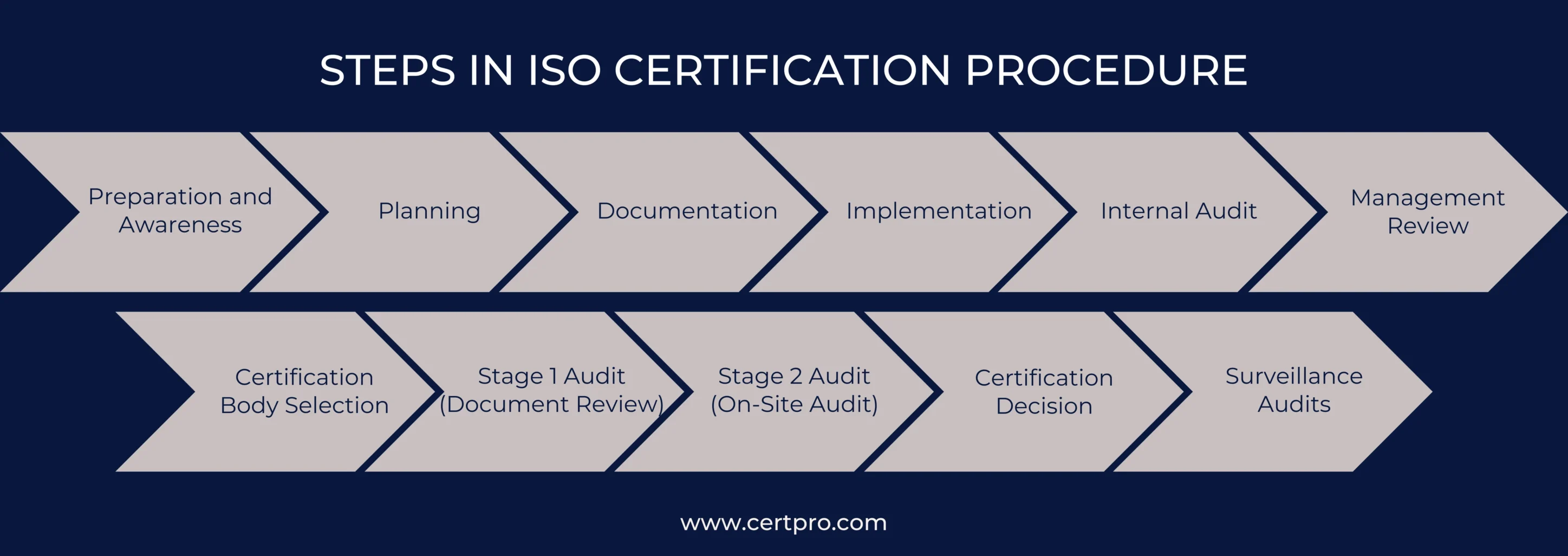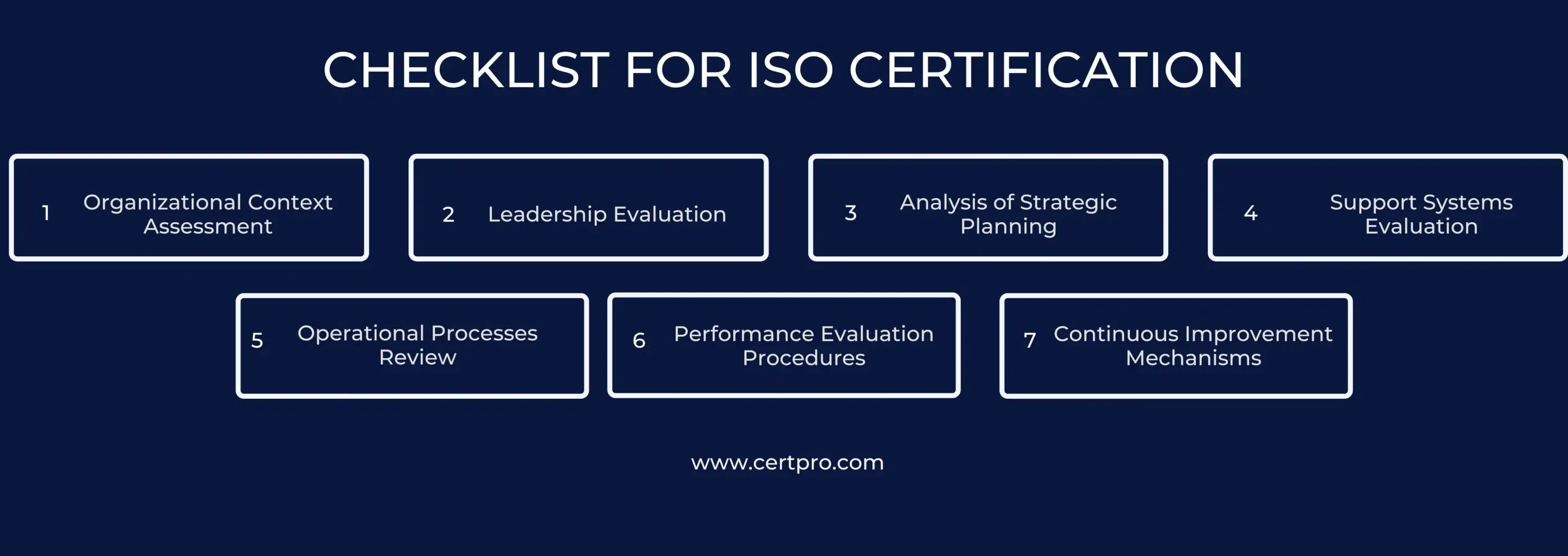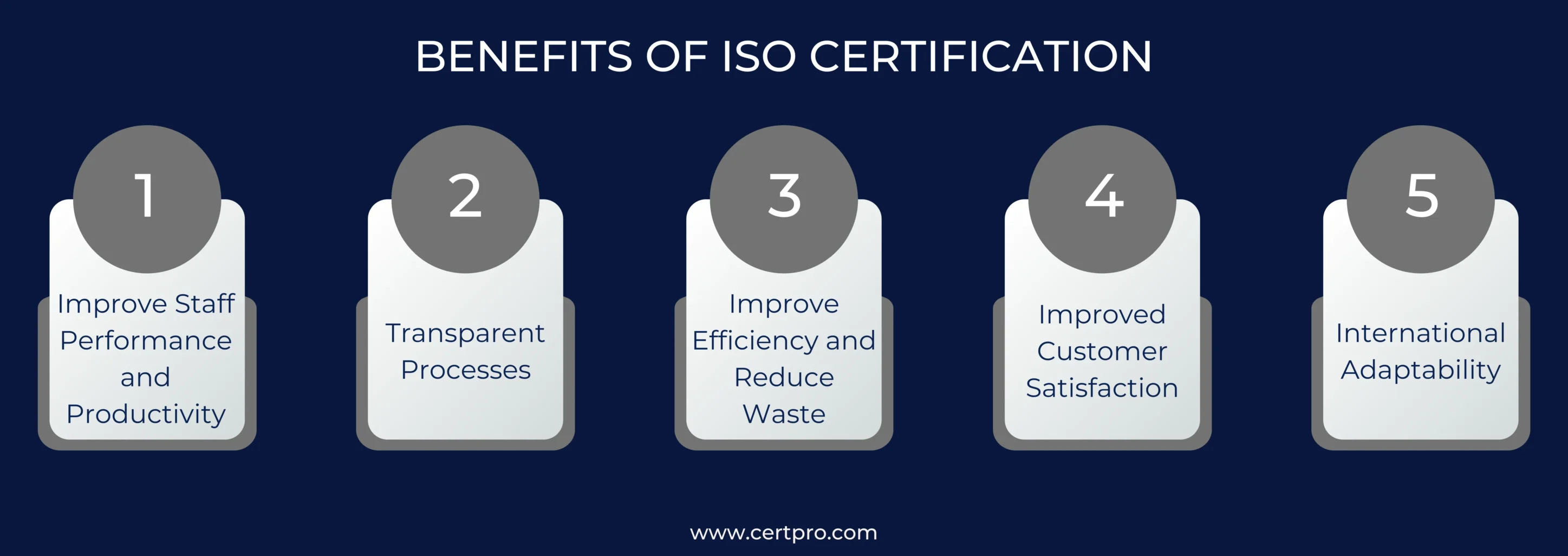Canada
ISO CERTIFICATION IN CANADA
Canada is one of the most learned countries in the world, with a literacy rate of almost 99%. It values higher education and invests 5.3% of its GDP in education, which shows how important it is to improve information and skills. Globalization has had a significant effect on businesses today, forcing them to make products for sale around the world. It is essential to create better goods and services because of this need. Acquiring ISO certification in Canada is crucial to business growth. To do business worldwide, the company has to follow specific standard controls and rules.
Conversely, in Canada, ISO approval means that a business follows strict rules. In Canada, where the market constantly changes, ISO is fundamental for building trust in goods and services. It raises the quality of the product or service and makes it more popular worldwide.
The ISO certification in Canada method was created in the middle of the 20th century to assure people that the products they bought were safe. It also keeps the workplace safe for workers. Because of this, ISO certification in Canada makes it easy to deal with other countries and ensures the quality of the products. In this way, the certification helps the company grow around the world. An ISO-certified business will give the buyers good goods and services. Read the whole page to learn more about ISO in Canada.
WHY ISO CERTIFICATION IN CANADA?
In Canada, ISO is vital because it helps your business find many new possibilities. ISO makes your business more productive and works hard to satisfy customers. Furthermore, getting certified can lower your risks and open up new opportunities. Therefore, your business can adapt better to changes in the market. Because of the record-keeping process, ISO certification in Canada also lowers the chance of making repeated mistakes. In addition, ISO helps Canadian companies grow and advertise their certification posture. This way of promoting your business shows that it meets foreign standards, which makes it more desirable on the global market.
In the same way, businesses want their suppliers to have ISO certification before collaborating. The certification method builds employee morale and keeps your company from having skill holes. Getting ISO approval makes staying in business in the global market easier.
UNDERSTANDING ISO CERTIFICATION IN CANADA
In Canada, getting ISO 9001 certification shows that a company is dedicated to offering reliable, high-quality goods and services. As Canada’s industry grows, the ISO 14001 standard is becoming more well-known. This standard promotes healthy growth and takes environmental issues into account. Therefore, ISO 27001 keeps private data safe, which fits in with Canada’s attempts to become more digital. ISO certification is constructive as the Canadian market is diverse. It builds customer trust and lets businesses fight for global recognition. In addition, ISO certification in Canada makes products more reliable by streamlining processes, cutting down on waste, and eliminating inefficiencies.
Related Links
SOC 2 in Canada
ISO 27701 in Canada
GDPR in Canada
ISO 27018 in Canada
HIPAA in Canada
CCPA in Canada
PIPEDA in Canada
ISO 17025 in Canada
ISO 13485 in Canada
CE Mark in Canada
GDP in Canada
GLP in Canada
ISO 9001 in Canada
ISO 14001 in Canada
ISO 45001 in Canada
ISO 22000 in Canada
HACCP in Canada
ISO 22301 in Canada
ISO 21001 in Canada
ISO 41001 in Canada
ISO 20000-1 in Canada
Companies with ISO certification in Canada can set up robust systems that align with best practices worldwide. Through ISO certification, the International Organization for Standardization (ISO) officially agrees that a business’s management system, processes, products, or services meet specific requirements. This independent, well-known group creates and shares standards to ensure quality, safety, and effectiveness in many fields. Since many companies use ISO standards, they make it easier for Canadian companies to sell their goods worldwide.
Companies with ISO certification often have an advantage over their competitors because it shows they are committed to quality and constant improvement. Canada puts a lot of stress on sustainability and environmental management, which is aligned with ISO 14001 certification. In addition, ISO standards often focus on what customers need to stay with a business. Continuous growth is an integral part of ISO certification. It helps companies simplify their processes and remain competitive in the market. Lastly, ISO certification in Canada improves a company’s image by showing that it follows international quality standards.

STEPS in ISO CERTIFICATION PROCEdure IN canada
ISO certification in Canada requires following the steps. However, the steps are flexible and can change as per business demands.
Preparation and Awareness: Before implementing the ISO standards, you should know your company’s goals. Knowing the guidelines, benefits, and implementation methods can help make the process easier to handle.
Planning: Provide a thorough strategy that outlines the actions needed to bring your processes into compliance with the ISO standard. Create an implementation schedule and assign responsibilities appropriately.
Documentation: Create or update the necessary paperwork, including policies, procedures, work instructions, and records, to make sure they meet the requirements of the ISO standard.
Implementation: Integrate your organization’s documented processes and procedures throughout the structure. Monitor the process carefully and make any required adjustments to guarantee a successful deployment.
Internal Audit: It examines your company’s current functions and finds flaws. Because of the steps, necessary changes must be made before the final audit.
Management Review: This process ensures the efficacy of the ISO management system and your organization. It also helps determine the necessary changes to improve the standards.
Certification Body Selection: ISO does not provide certification; separate bodies are there for certification. So, select the certification bodies carefully based on their quality and experience.
Stage 1 Audit (Document Review): The certification organization’s initial evaluation of your documentation and procedures confirms that they meet the ISO standards.
Stage 2 Audit (On-Site Audit): The certification authority conducts an on-site audit to verify the implementation of your ISO management system and assess how well your processes adhere to standard standards.
Certification Decision: The certification body decides whether to grant certification based on the audit findings. If your business complies with the standard’s standards, it will be awarded an ISO certificate.
Surveillance Audits: The certifying body conducts surveillance audits regularly, typically once a year, to verify continuous conformity with the ISO standard.
Adherence to the certification organization’s criteria and close communication with them are crucial throughout the procedure.

ISO CERTIFICATION PROCESSING TIME
It takes at least three to six months for ISO certification in Canada. The main goal of certification is to take the necessary steps to become qualified. A company has to set up and follow specific steps for a certain amount of time before their first check. Also, implementing ISO standards is complicated, and you can get help from a professional. CertPro, ISO consultants in Canada, could help you with this. CertPro will help you ensure the proper steps are taken at the correct time. The certification continues for three years but needs to be renewed every year. You need to work with skilled ISO professionals to align your business with ISO standards.
CHECKLIST FOR ISO CERTIFICATION IN CANADA
The following audit plan ensures that ISO rules are being met and followed. However, it is not a fixed plan; it depends on the company’s structure and complexity.
Organizational Context Assessment: Understanding the organization’s certification goals is advisable. It’s helpful to be aware of internal and external factors and stakeholders’ demands. The process also helps determine possible threats to organizations’ compliance.
Leadership Evaluation: It demonstrates that the company is dedicated to providing top-notch services and has the tools to ensure compliance.
Analysis of Strategic Planning: It is necessary to demonstrate how the plans work in implementing compliance. Therefore, strategic planning ensures that the organization’s resources are used.
Support Systems Evaluation: Establishing a quality control system is essential. The process requires infrastructure, the operating environment, expertise, and techniques.
Operational Processes Review: An organization needs to scrutinize its services. This helps it understand how vulnerable it is. Again, this process requires a more in-depth look from an outside reviewer.
Performance Evaluation Procedures: This helps in evaluating the efficacy of implemented controls. Therefore, manager reviews, internal audits, and customer feedback surveys can all be used in this respect.
Continuous Improvement Mechanisms: Set up plans that will help the system improve over time. ISO rules say steps should be taken to encourage growth to continue.

POPULAR ISO STANDARDS IN CANADA
Many of ISO’s standards have been accepted by businesses in Canada, helping to raise the standards for quality, safety, and efficiency. One that stands out is ISO 9001:2015, which stresses using quality control systems to ensure that goods and services are reliable and uniform. In line with Canada’s focus on sustainability, ISO 14001:2015 talks about environmental management systems and pushes people to act honestly even as the country’s industries grow. Canada is becoming increasingly digital. ISO 27001:2013 is becoming increasingly important for data security. This standard helps businesses keep private information safe, supporting Canada’s digital security efforts. ISO 26262 is very important to the car business because it ensures that electrical and electronic systems work safely, making the roads safer.
Also, ISO 45001:2018 emphasizes health and safety at work, ideally in line with Canada’s commitment to its workers’ well-being. ISO 22000:2018 covers food safety management methods in the food business, protecting customers. ISO 50001:2018 is mainly about energy management, which aligns with Canada’s resolve to use energy in a way that doesn’t harm the environment. When considered, the ISO guidelines align with Canada’s goals for better technology, following the rules, and growth. Because of this, they are essential for improving business processes and getting Canadian companies recognized worldwide.
BENEFITS OF ISO CERTIFICATION IN CANADA
ISO certification in Canada makes your business better. Getting the certification shows that your company is setting the bar for quality management systems. To help you understand it better, here is a short list of the benefits:
Improve Staff Performance and Productivity: ISO in Canada offers businesses a huge chance to become efficient. Thus, standardizing the operation process makes it easier for employees to follow a work pattern.
Transparent Processes: External auditors perform an audit as part of the certification process, creating a clear vision of the future steps. Furthermore, ISO standards showcase the organization’s commitment to quality products and services. Therefore, certification reduces uncertainty and confusion in compliance processes.
Improve Efficiency and Reduce Waste: ISO certification in Canada helps your business grow globally. It reduces running costs and eliminates unnecessary expenses. Therefore, ISO in Canada sets guidelines for quality management systems, which can help companies advance financially.
Improved Customer Satisfaction: The certification shows your clients that your business is trustworthy. Thus, getting ISO approval is a reasonable way to show that you are committed to making quality products and utilizing efficient processes. Therefore, if a company in Canada gets ISO certification, its products and services satisfy international quality standards.
International Adaptability: ISO certification in Canada shows that its products and services attain international standards for entering the global market.
The standards ensure that the company’s goods and services meet standards from other countries. They also show that the business has a clear plan to reduce and eliminate any risks that might arise. After getting ISO, companies can work from anywhere in the world, which helps them grow.

INDUSTRIES THAT BENEFIT FROM ISO CERTIFICATION IN CANADA
Many Canadian companies have learned how vital ISO certification in Canada is to their business. It has so many benefits that significantly affect many industries across the country. These certificates are more than just a way to show off. The standards show a solid commitment to quality, safety, and economy. Two clear benefits of ISO 9001 certification for the production business are better product quality and more efficient operations. This certification benefits businesses by encouraging a mindset of always getting better, which makes customers happier and gives them an edge in the market. Customers see ISO certification as a sign of trustworthiness.
These days, data is evolving into a valuable asset for organizations. Thus, getting ISO 27001 certification is vital for Canada’s IT business. With this certification, the field can use new technologies while keeping private information safe. This makes risk management and data security stronger. It’s necessary for more than just making businesses; it’s also essential for building trust with clients in all situations. The ISO/TS 16949 standard, created especially for the automotive industry, supports Canada’s status as a world leader in making high-end cars by ensuring that vehicles are safe and durable. The country’s health care system is better because it guarantees accuracy, follows the law, and meets high standards.
The certification encourages green building practices and pushes the boundaries of environmental building technologies. ISO consultants in Canada help businesses make sure they follow ISO guidelines and guide them throughout the certification process. As part of this commitment, certificates that raise the bar for data protection and privacy in Canada’s healthcare sector have been earned. In addition, getting ISO certification in Canada shows that you care about the well-being of society and the environment, as well as your business. The fact that ISO experts are involved shows that companies want strategic advice on best dealing with certification situations.
CERTPRO: EMPOWERING YOUR BUSINESS TO ATTAIN ISO CERTIFICATION EFFORTLESSLY
Having ISO certification in Canada indicates that your company is reliable worldwide. In this regard, CertPro can help your business adhere to ISO standards. We are reputed ISO consultants in Canada. We abide by the regulations to provide our clients with the best possible service. Furthermore, our professionals will assist you in developing an approval process. CertPro additionally modifies the requirements according to the business’s demands. Lastly, we will offer all services needed for the certification and surveillance reporting.
FAQ
What is ISO certification, and why is it important in Canada?
In Canada, ISO certification, confirming adherence to international standards, is crucial for organizations seeking operational efficiency, quality assurance, and trust in the competitive global market.
How can a company in Canada get ISO certified?
To obtain ISO certification in Canada, a company must undergo processes such as certification preparation, applying ISO standards, internal audits, choosing a certification body, and concluding external audits.
What are the benefits of ISO certification in Canada?
ISO Certification in Canada offers benefits such as increased reputation, better market access, operational efficiency, customer trust, regulatory compliance, and alignment with sustainable practices.
Why is ISO 9001 certification significant for Canadian organizations?
ISO 9001 certification in Canada signifies a commitment to quality management, enabling companies to develop reliable, customer-focused goods and services.
What Are the Essential Steps in the ISO Certification Process in Canada?
The ISO certification process in Canada involves preparation, planning, documentation, implementation, internal audit, management review, certification body selection, document review, on-site audit, certification decision, and surveillance audits.
HOW DOES ISO 27001 FOR STARTUPS IN INDIA HELP TO MEET GLOBAL STANDARDS?
India is the world’s fifth-largest economy, with a vibrant startup ecosystem that supports young professionals in making global changes. After the US and China, India ranks third globally for startup businesses. In this fascinating scenario, ISO 27001 for startups in...
SOC 2 CERTIFICATION IN INDIA: STRATEGIES FOR TECH SECTOR COMPLIANCE IN 2025
The AICPA developed SOC 2 certification in India as a collection of guidelines to assist IT businesses in protecting client data. With the rapid growth of India's digital sector, safeguarding personal data is more crucial than ever. Businesses must demonstrate their...
IT COMPLIANCE IN 2024: ESSENTIAL TRENDS AND BEST PRACTICES
IT compliance is essential for every organization to secure the integrity and accountability of data. The process also helps develop the business and enhance its profitability. In today’s digital era, IT compliance has more than just a regulatory checkbox. It plays a...












